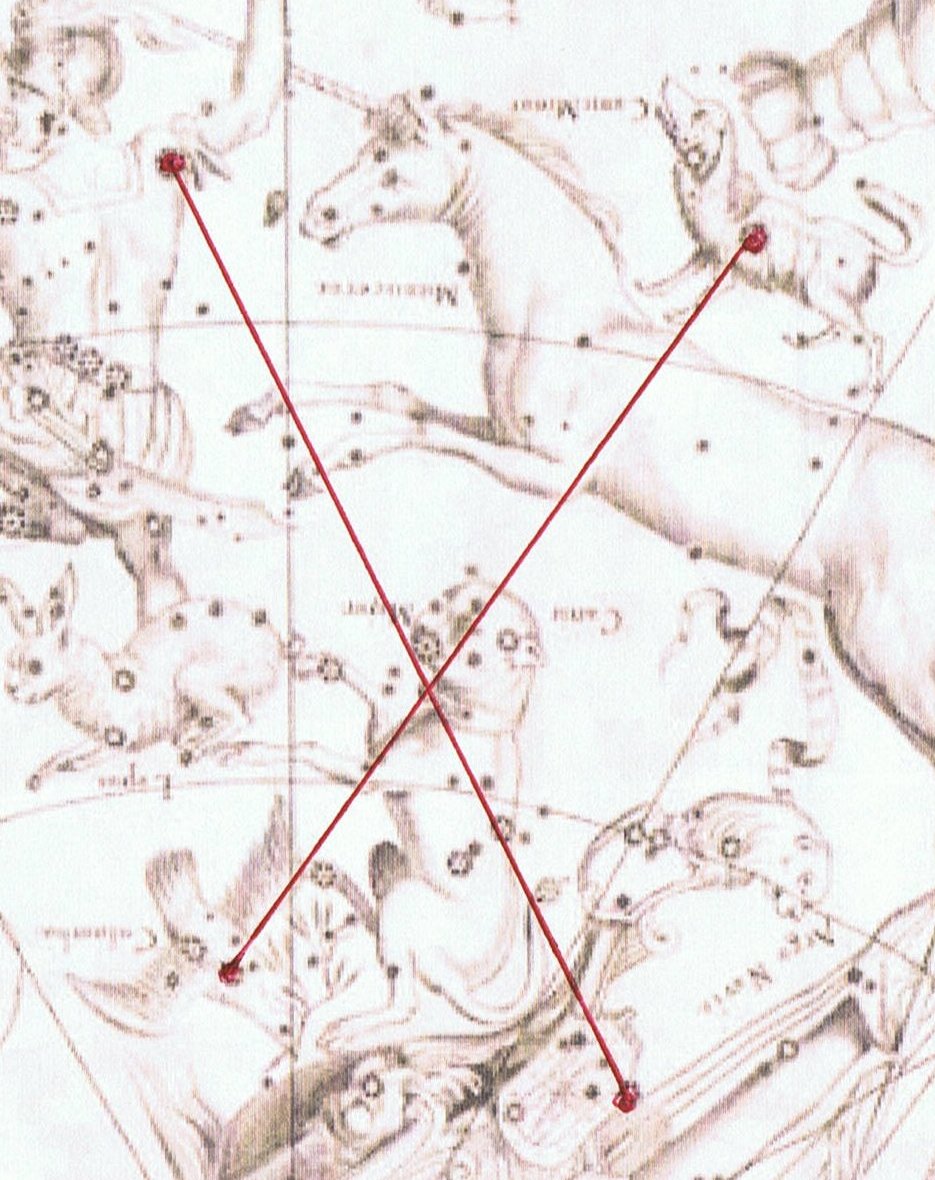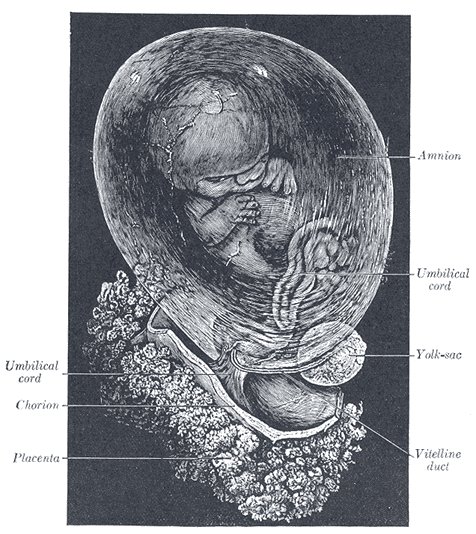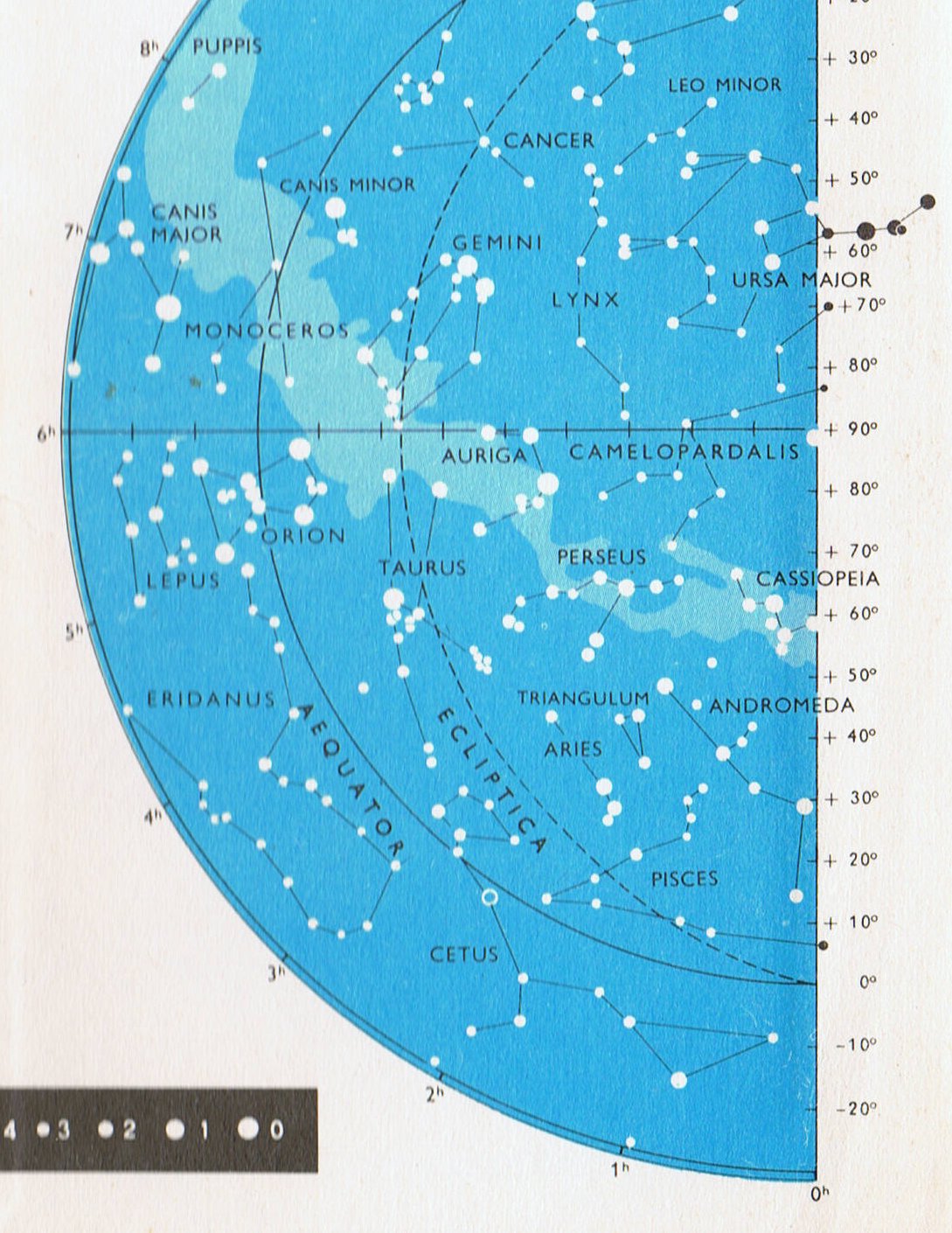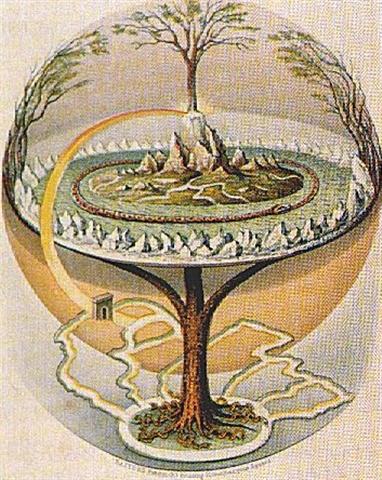Once
again.
Precession
had
moved
0h
to
heliacal
Sirrah
at
the
end
of
the
Pegasus
Square
while
the
stars
were
still
standing
approximately at
their
correct
heliacal
positions
as
related
to
the
Hyades
Gate
(respectively
as
related
to
the
Haedus
Gate).
The
Sun
had
moved
his
cardinal
points
with
64
days
since
the
time
of
Taurus
and
with
75
days
since
the
time
of
Auriga.
In
order
to
construct
a
reasonable
and updated
Sun
calendar
for
Easter
Island
the
midwinter
solstice
should
come
early
in
the
text
and
beyond
that
should
be signs of
a new
year, of
a new
'creation':
 |
 |
 |
 |
 |
| Ga1-30 |
Ga2-1 |
Ga2-2 |
Ga2-3 (33) |
Ga2-4 |
| ●APRIL 9 (*19) |
10 (100) |
11 |
12 |
13 |
| APRIL 20 (*30) |
21 (111) |
22 |
23 |
24 |
| Furud (94.9) |
Well-22 / Arkū-sha-pu-u-mash-mashu-9 |
no star listed (96) |
β Monocerotis, ν Gemini (97.0) |
no star listed (98) |
| δ Columbae (95.2), TEJAT POSTERIOR, Mirzam (95.4), CANOPUS (95.6), ε Monocerotis (95.7), ψ1 Aurigae (95.9) |
| June 23 |
ST JOHN'S EVE |
25 |
26 (177) |
27 |
| 'May 27 |
28 (*68) |
29 |
30 (150) |
31 |
| NAKSHATRA DATES: |
| ●OCTOBER 9 |
10 |
11 (*204) |
12 (285) |
13 |
| OCTOBER 20 |
21 |
22 (295) |
23 (*216) |
24 |
| Purva Ashadha-20 |
Kaus Borealis (279.3) |
ν Pavonis (280.4), κ Cor. Austr. (280.9) |
Abhijit-22 |
| KAUS MEDIUS, κ Lyrae (277.5), Tung Hae (277.7) |
φ Oct. (278.1), KAUS AUSTRALIS (278.3), ξ Pavonis (278.4), Al Athfar (278.6) |
θ Cor. Austr. (281.0), VEGA (281.8) |
| December 23 |
CHRISTMAS EVE |
25 |
26 (360) |
27 |
| 'Nov 26 (*250) |
27 |
28 |
29 (333) |
30 |
 |
 |
 |
 |
| Ga2-5 |
Ga2-6 (36) |
Ga2-7 |
Ga2-8 |
| ●APRIL 14 |
15 |
16 (*26) |
17 (107) |
| APRIL 25 |
26 (*36) |
27 |
28 (118) |
| ν Puppis (99.2), ψ3 Aurigae (99.4), ψ2 Aurigae (99.5)
Gemma
|
ψ4 Aurigae (100.5), Mebsuta (100.7) |
SIRIUS (101.2), ψ5 Aurigae (101.4), ν Gemini (101.6), ψ6 Aurigae (101.7) |
τ Puppis (102.2), ψ7 Aurigae (102.4) |
| June 28 |
29 (180) |
30 |
July 1 |
| 'June 1 |
2 (*73) |
3 (154) |
4 |
| NAKSHATRA DATES: |
| ●OCTOBER 14 |
15 (*208) |
16 |
17 (290) |
| OCTOBER 25 |
26 (*219) |
27 (300) |
28 |
| no star listed (282) |
ζ Pavonis (283.4), λ Cor. Austr. (283.6), Double Double (283.7), ζ Lyrae (283.8) |
South Dipper-8 |
Sheliak, ν Lyrae (285.1), λ Pavonis (285.7)
Atlas
|
| Φ SAGITTARII (284.0), μ Cor. Austr. (284.6), η Cor. Austr., θ Pavonis (284.8) |
| December 28 |
29 |
30 (364) |
31 |
| 'December 1 |
2 (336 = 14 * 24) |
3 |
4 (*258) |
 |
 |
 |
 |
| Ga2-9 |
Ga2-10 (40) |
Ga2-11 |
Ga2-12 |
| ●APRIL 18 (*28) |
19 |
20 |
21 (111) |
| APRIL 29 (*39) |
30 |
MAY 1 (121) |
2 |
| Mash-mashu-sha-Risū-10 |
Adara (104.8) |
ω Gemini (105.4), Alzirr (105.7), MULIPHEIN (105.8), Mekbuda (105.9) |
7h (106.5) |
| θ Gemini (103.0), ψ8 Aurigae (103.2), ALHENA (103.8), ψ9 Aurigae (103.9) |
no star listed (106) |
| July 2 |
3 |
4 (185) |
5 |
| 'June 5 (156 = 12 * 13) |
6 (*77) |
7 |
8 |
| NAKSHATRA DATES: |
| ●OCTOBER 18 (291) |
19 |
20 |
21 (*214) |
| OCTOBER 29 (*222) |
30 |
31 (304) |
NOVEMBER 1 |
| χ Oct. (286.0), Ain al Rami (286.2), δ Lyrae (286.3), κ Pavonis (286.5), Alya (286.6) |
ξ Sagittarii (287.1), ω Pavonis (287.3), ε Aquilae, ε Cor. Austr., Sulaphat (287.4), λ Lyrae (287.7), Ascella, Bered (Ant.) (287.9) |
Uttara Ashadha-21 |
19h (289.2) |
| NUNKI (288.4), ζ Cor. Austr. (288.5), Manubrium (288.8), ζ Aquilae (288.9) |
λ Aquilae (Ant.) (289.1), γ Cor. Austr (289.3), τ Sagittarii (289.4), ι Lyrae (289.5), δ Cor. Austr. (289.8) |
| January 1 (366) |
2 |
3 |
4 |
| 'December 5 |
6 (340) |
7 (*261 = 9 * 29) |
8 |
 |
 |
 |
 |
 |
| Ga2-13 |
Ga2-14 (44) |
Ga2-15 |
Ga2-16 |
Ga2-17 |
| ●APRIL 22 (*32) |
23 |
24 (114) |
25 |
26 |
| MAY 3 |
4 (*44) |
5 (125) |
6 |
7 |
| WEZEN (107.1), τ Gemini (107.7), δ Monocerotis (107.9) |
no star listed (108) |
λ Gemini (109.4), Wasat (109.8) |
no star listed (110) |
Aludra (111.1), Propus (111.4), Gomeisa (111.6) |
| July 6 |
7 (188) |
8 |
9 |
10 |
| 'June 9 |
10 (161) |
11 |
12 |
13 (*84) |
| NAKSHATRA DATES: |
| ●OCTOBER 22 (295) |
23 (*216) |
24 |
25 |
26 |
| NOVEMBER 2 |
3 (*227) |
4 (308) |
5 |
6 |
| Al Baldah-19 / Cargo Boat-91 |
Aladfar (291.1), Nodus II (291.5), ψ Sagittarii (291.6), θ Lyrae (291.8) |
ω Aquilae (292.1), ρ Sagittarii (292.6), υ Sagittarii (292.7) |
Arkab Prior (293.0), Arkab Posterior, Alrami (293.2), χ Sagittarii (293.6) |
Deneb Okab (294.0), α Vulpeculae (294.9) |
| AL BALDAH, ALPHEKKA MERIDIANA (290.1), β Cor. Austr. (290.2) |
| January 5 |
6 |
7 (372) |
8 |
9 |
| 'December 9 |
10 (344) |
11 (*265) |
12 |
LUCIA |
 |
 |
 |
 |
 |
 |
| Ga2-18 |
Ga2-19 |
Ga2-20 (50) |
Ga2-21 |
Ga2-22 |
Ga2-23 |
| ●APRIL 27 |
28 (118) |
29 (*404) |
30 |
●MAY 1 |
2 (*42) |
| MAY 8 (*413) |
9 |
10 (130) |
11 |
12 |
13 (*53) |
| Ghost-23 |
Al Dhirā'-5 / Punarvasu-7 / Mash-mashu-Mahrū-11 |
ANA-TAHUA-VAHINE-O-TOA-TE-MANAVA |
α Monocerotis (115.4), σ Gemini (115.7) |
Mash-mashu-arkū-12 |
Azmidiske (117.4) |
| ρ GEMINI (112.1), Eskimo Nebula (112.2) Antares
|
CASTOR (113.4) |
υ Gemini (114.0), Markab Puppis (114.7), ο Gemini (114.8), PROCYON (114.9) |
κ Gemini (116.1), POLLUX (116.2), π Gemini (116.9) |
| July 11 |
12 (193) |
13 |
14 |
15 (196) |
16 |
| 'June 14 |
15 |
16 |
17 (*88) |
18 |
19 |
| NAKSHATRA DATES: |
| ●OCTOBER 27 (300) |
28 |
29 (*222) |
30 |
31 |
● NOVEMBER 1 |
| NOV 7 (*231) |
8 |
9 |
10 (314) |
11 |
12 |
| ν Aquilae (Ant.) (295.0), Albireo (295.5) |
μ Aquilae (296.3), ι Aquilae (Ant.) (296.8), κ Aquilae (Ant.) (296.9) |
ε Sagittae (297.1), σ Aquilae (Ant.) (297.4), Sham (297.8) |
β Sagittae (298.0), χ Aquilae (298.3), ψ Aquilae (298.8) |
υ Aquilae (299.1), Tarazed (299.3), δ Sagittae (299.6), π Aquilae (299.9) |
Sravana-23 |
| ζ Sagittae (300.1), ALTAIR (300.3), ο Aquilae (300.5), Bezek (300.8) |
| January 10 |
11 |
12 (377) |
13 |
14 |
15 |
| 'December 14 |
15 |
16 (350) |
17 |
18 |
19 |
 |
 |
 |
 |
 |
 |
 |
| Ga2-24 |
Ga2-25 |
Ga2-26 |
Ga2-27 |
Ga2-28 |
Ga2-29 |
Ga3-1 (60) |
| ●MAY 3 |
4 |
5 (125) |
6 |
7 |
8 (*48) |
9 |
| MAY 14 |
15 |
16 (136) |
17 |
18 |
19 |
20 (*60) |
| φ Gemini (118.4) |
Drus (119.9) |
ω Cancri (120.2) |
8h (121.7) |
ρ Puppis (122.0), Heap of Fuel (122.1), ζ Monocerotis (122.3), ψ Cancri (122.6), Regor (122.7) |
Tegmine (123.3) |
Al Tarf (124.3)
Ras Algethi
|
| χ Gemini (121.0), NAOS (121.3) |
| July 17 |
18 |
19 (200) |
20 |
21 |
7-22 |
23 |
| 'June 20 (*91) |
SOLSTICE |
22 |
23 |
ST JOHN'S EVE |
25 |
26 (177 = 6 * 29½) |
| NAKSHATRA DATES: |
| ●NOVEMBER 2 |
3 |
4 (308) |
5 (*229) |
6 |
7 |
8 |
| NOVEMBER 13 |
14 (318) |
15 |
16 (*240) |
17 |
18 (322) |
19 |
| ι Sagittarii (301.2), Terebellum, ξ Aquilae (301.3), Alshain (301.6), φ Aquilae (301.8) |
ε Pavonis, θ Sagittarii (302.3), γ Sagittae (302.5), μ Pavonis (302.7) |
τ Aquilae (303.8) |
20h (304.4) |
Shang Wei (305.2), θ Sagittae (305.4), Tseen Foo (305.6), ξ Capricorni (305.8) |
Tso Ke (306.3) |
Gredi (307.2), σ Capricorni (307.5), Alshat (307.9) |
| η Sagittae (304.2), δ Pavonis (304.4) |
| January 16 |
17 |
18 (383) |
19 |
20 |
21 |
22 |
| 'December 20 |
SOLSTICE |
22 |
23 |
X-MAS EVE |
25 |
26 (*280) |
It was
not
systematic
trial
and
error
which made me
above abandon
my
method
to
document
also the
dates
according
to the
Gregorian
calendar
and the
dates
according
to the
time of
Bharani.
Instead
it was
the
survival
of the
fittest
(the
basic rule of
life). These
dates
are not
irrelevant
but they
would
distract
from
keeping the
proper
focus.
When
'land'
was
drawn up
(recreated) from the
southwest
(toga) it
happened
in early
July
about
13 days
after
the
southern winter
solstice.
Nunki,
which
once had
announced
the
'sea'
north of
the
equator,
was here at
the Full
Moon
which could be
interpreted
as the
time
when
south of
the
equator
the
'fish'
should
be 'landed'.
From
July 4
(185) -
at the
fishhook
in Ga2-11
- to
July 22
(7-22)
there
were 18
days,
i.e.
Ga2-29 was
around
13 + 18
= 31
days
from the
solstice.
The
glyph
number
at the
fishhook is
59,
which
means
the star
position
was 59
days
after 0h
at the
time of
the
Hyades
Gate.
Ga2-29
probably
alluded
to the
last day
of
February
in a
leap
year:
 |
 |
 |
24 |
 |
 |
 |
| Gb6-25 |
SIRRAH |
ALGENIB PEGASI |
POLARIS |
SHERATAN |
Gb7-26 (436) |
| 'February 21 |
2-22 |
TERMINALIA |
'March 20 |
0h |
3-22 |
| 27 |
 |
 |
 |
24 |
 |
 |
 |
| Ga1-30 |
CANOPUS |
Ga2-2 |
NAOS |
ρ Puppis |
Ga2-29 (59) |
| 'May 27 |
28 (148) |
5-29 |
'June 23 |
ST JOHN'S EVE |
25 (176) |
| 27 |
...
Terminalia
+ 5 =
'February
28.
Ga2-29
is not
comparable
to
'February
28 (59).
It is
471 -
409
(Algenib
Persei)
+ 59 =
121 (=
11 * 11)
glyphs
later
than
Terminalia.
Or if we
should
count
the
empty
glyph
space at
the
beginning
of side
a the
distance
would be
122 (= 2
* 61).
In
rongorongo
times
Rei
in
Ga2-27
was 121
days
after
0h.
If
Ga2-29
should
be
counted
only in
leap-years,
then the
normal
number
of days
on side
a would
be 229 -
1 = 228,
where we
can
count 22
* 8 =
176
('June
25).
436
(Gb7-26)
- 59
(Ga2-29)
= 377 (=
472 -
95) =
378 - 1:
...
The
ordinary
year
in
the
previous
Roman
calendar
consisted
of
12
months,
for
a
total
of
355
days.
In
addition,
a
27-day
intercalary
month,
the
Mensis
Intercalaris,
was
sometimes
inserted
between
February
and
March.
This
intercalary
month
was
formed
by
inserting
22
days
after
the
first
23
or
24
days
of
February;
the
last
five
days
of
February,
which
counted
down
toward
the
start
of
March,
became
the
last
five
days
of
Intercalaris.
The
net
effect
was
to
add
22
or
23
days
to
the
year,
forming
an
intercalary
year
of
377
or
378
days
...
Tegmine
is
ζ
Cancri
and
the
name
seems
to
mean
'covering'
-
which
would
be
appropriate
if
it
was
used
only
at
leap-days.
Al
Tarf
is β
Cancri
and
its
name
indicates
'end'.
Probably
the
creator
of
the
glyph
text
meant
this
manu
kake
to
be
at a
cardinal
point
and
the
'bird'
(the
Sun)
ought
to
climb
beyond
day
59
(or
60
in a
leap
year)
...
Caesar
added 2
months
to the
earlier
calendar
which
ought to
have
caused a
change
in how
the
months
should
be
correlated
with the
stars.
Without
perceiving
the
precise
consequences
we can
count:
There
were 27
precessional
days
from
Roman
times to
the time
of rongorongo
and 27 +
61 (2
months)
= 88
and 80 +
88 = 168
(June
17). And
'May 21
was 2
months
(61 days)
after
0h:
 |
 |
 |
 |
 |
| Ga1-22 |
Ga1-23 |
Ga1-24 |
Ga1-25 |
Ga1-26 |
| ●APRIL 1 (91) |
2 |
3 (*13) |
4 |
5 (460) |
| APRIL 12 |
13 |
14 (104) |
15 (*25) |
16 (471) |
| μ Columbae, Saiph (86.5), τ Aurigae, ζ Leporis (86.6) |
υ Aurigae (87.1), ν Aurigae (87.2), Wezn, δ Leporis (87.7), Tze (87.9) |
Ardra-6 / ANA-VARU (8) |
η Leporis (89.0), Praja-pāti, Menkalinan, Mahashim, and γ Columbae (89.3), π Aurigae (89.4), η Columbae (89.7) |
μ Orionis (90.3), χ² Orionis (90.5) |
| χ¹ Orionis, ξ Aurigae (88.1), BETELGEUZE (88.3), ξ Columbae (88.5), σ Columbae (88.7)
Zuben Elgenubi
|
| June 15 |
16 |
17 (168) |
18 |
19 |
| 'May 19 |
20 |
21 |
22 |
23 (*63) |
| NAKSHATRA DATES: |
| ●OCTOBER 1 |
2 |
3 (*196) |
4 (277) |
5 |
| OCTOBER 12 |
13 |
14 (*207) |
15 (288) |
16 |
| Muliphen (269.0), Basanismus (269.5), Pherkard (269.9) |
Ptolemy Cluster (270.5) |
Rukbalgethi Genubi (271.1), ξ Herculis (271.5), Etamin, ν Herculis (271.7), ν Ophiuchi (271.8) |
ζ Serpentis (272.4), τ Ophiuchi (272.9) |
Winnowing Basket-7 |
| 18h (273.4) |
| NASH (273.7), θ Arae (273.8) |
| December 15 |
16 (350) |
17 |
18 |
19 (*273) |
| 'November 18 |
19 |
20 |
21 |
22 (*246) |

Atariki
(the
shadow
king)
at
Betelgeuze
was
the
beginning
of
the
Egyptian X
and
in
Ga2-29
we
can
therefore imagine
him
turned upside
down.
We
could
think
of
Procyon
as
his successor,
rising
up
from
Columba
Noachi
-
his
successor
being
the
wife
(ana
tahua
vahine)
of
toa
te
manava
(the
man
at
the
belly).
 |
 |
| atariki |
Ga2-29 (59) |
 ...
the oak had made trouble right from the start. When (in the second rune of the
Kalevala) Sämpsä Pellervoinen had sowed trees, it was the oak alone that
would
not
grow
until
four
or
five
lovely
maidens
from
the
water,
and
a
hero
from
the
ocean,
had
cleared
the
ground
with
fire
and
planted
an
acorn
in
the
ashes;
and
once
it
had
started,
the
growth
of
the
tree
could
not
be
stopped:
And the summit rose to heaven // And its leaves in air expanded, // In their
course the clouds it hindered, // And the driving clouds impeded, // And it hid
the shining sunlight, // And the gleaming of the moonlight.
Then
the aged Väinömoinen, // Pondered deeply and reflected, // 'Is there none to
fell the oak-tree, // And o'erthrow the tree majestic? // Sad is now the life of
mortals, // And for fish to swim is dismal, // Since the air is void of
sunlight, // And the gleaming of the moonlight.'
'One
sought above in the sky, below in the lap of the earth', as we are informed by
variants, but then Väinömoinen asked his divine mother for help.
Then a man arose from ocean // From the waves a hero started, // Not the hugest
of the hugest, // Not the smallest of the smallest. // As a man's thumb was his
stature; // Lofty as the span of woman.
The 'puny man from the ocean', whose 'hair reached down to his heels, the beard
to his knees', announces, 'I have come to fell the oak
tree / And to splinter it to
fragments'.
And
so he does. In several variants the oak is said to have fallen over the
Northland River, so as to form the bridge into the abode of the dead. Holmberg
(quoted by Lauri Honko, 'Finnen', Wb. Myth., p. 369) took the oak for the
Milky Way ...


|























